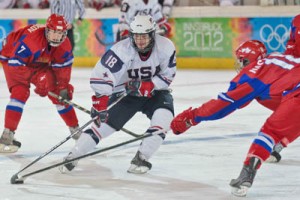 In the last couple of weeks, there’s been plenty of exposure of the way national league players have become addicted to drugs and/or alcohol. Sometimes it happens because they are regularly dosed with pain medication to cover up injuries so they can play. And sometimes it comes because of the big money, high profile, high stress lives they lead.
In the last couple of weeks, there’s been plenty of exposure of the way national league players have become addicted to drugs and/or alcohol. Sometimes it happens because they are regularly dosed with pain medication to cover up injuries so they can play. And sometimes it comes because of the big money, high profile, high stress lives they lead.
A couple of weeks ago, a group of former National Football League players sued the league for the practices that left them injured, disabled and often, addicted. Trainers would clear them to play before their injuries were healed. Sometimes the players were not even told the real extent of their injuries and so were willing to get back to the field – to their own detriment.
Some players claim that the painkillers and other pills were illegally dispensed by the league. The charges in the lawsuit are actually pretty brutal. The players claim that the league put their profits before the health and welfare of the players.
In the world of hockey, a number of players have gone public with their drug use while playing, noting the way they had to rely on painkillers to get out on the ice or alcohol to give them respite while off the ice. A compilation on the website www.substance.com lists ten of them. That article can be found here: http://www.substance.com/ten-hockey-stars-who-fought-drug-problems/. Cocaine, alcohol, marijuana, opiates – some of the players sobered up and some didn’t survive.
High School Athletes Also at Risk
But I should remind you that addiction doesn’t just exist in the majors. According to the website www.lockthecabinet.com, two million high school students get injured playing sports each year. A study of male high school athletes published in the Journal of Adolescent Health pointed out the higher odds of being prescribed painkillers because of sports injuries and the subsequently higher odds of misusing those pills when the athletes were compared to other students who were not involved in sports.
When a teen enjoys participating in sports, parents need to be vigilant about monitoring injuries and treatment, the proper healing of those injuries and medications that are prescribed, all in order to keep the child from being susceptible to painkiller abuse. Young players should not be encouraged to use painkillers so they can play before they are ready or they could wind up in the same situation as the hockey and football players discussed above.
But it’s so worth it, to be able to raise a drug-free child who does not fall to addiction.
http://www.jahonline.org/article/S1054-139X(13)00484-9/abstract
http://www.nydailynews.com/sports/football/ex-players-sue-nfl-painkiller-abuse-article-1.1799275